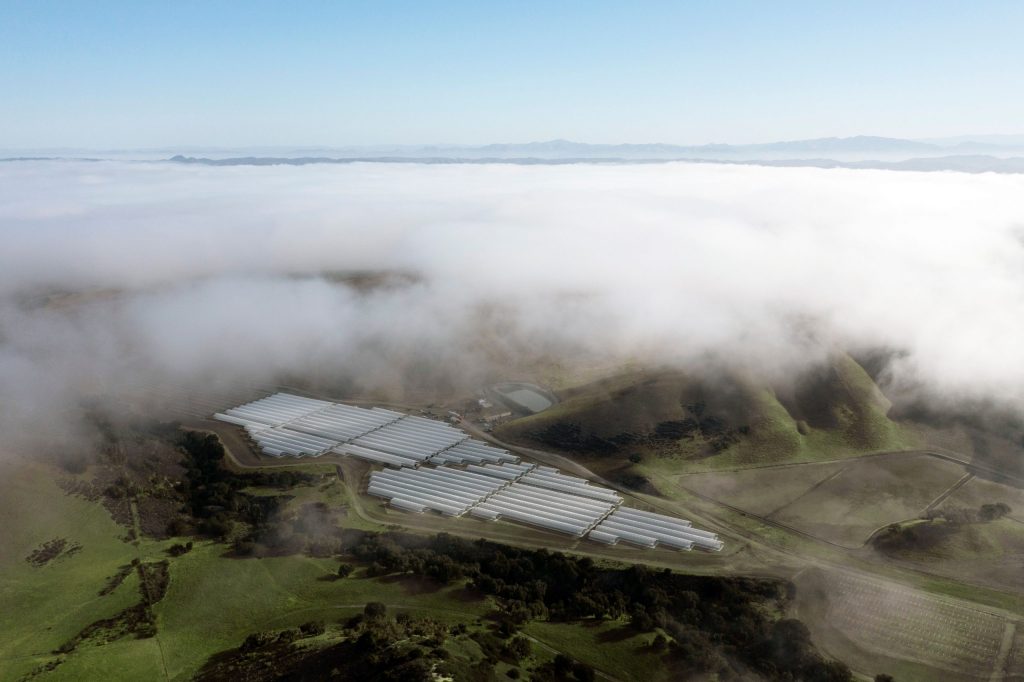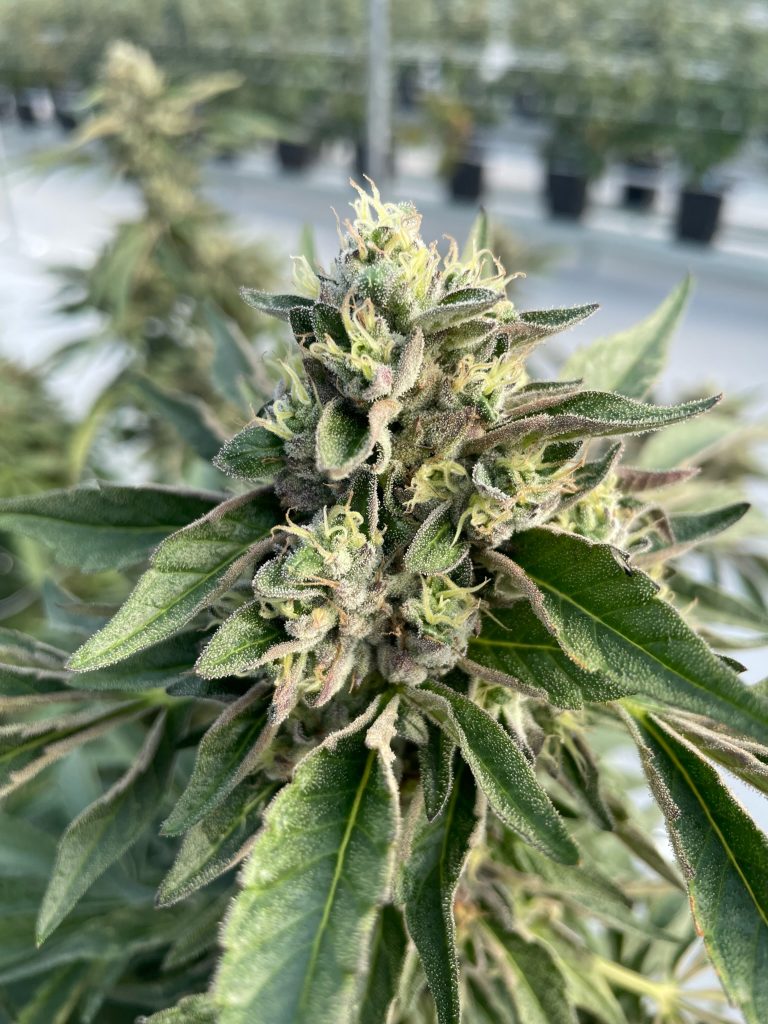Farming First expands Central Coast’s booming cannabis presence
IN THIS ARTICLE
- Agribusiness Topic
- Jorge Mercado Author
By Jorge Mercado Monday, December 19th, 2022

The Central Coast has the potential to be the premier place to grow cannabis, especially if the federal market ever comes into play — that is what Will Terry believes.
A fifth-generation farmer, Terry founded a new operation, Farming First Holdings in 2019 and invested his time, money, and effort into building a robust setup.
On Dec. 19, Farming First unveiled that operation, announcing its 134-acre outdoor cannabis cultivation farm located in Northern Santa Barbara County near the city of Los Alamos which possesses the entitlements for what could become the largest contiguous outdoor cultivation in the state.
Previously, Glass House Brands’ operation in Camarillo had the potential to be the largest cannabis operation in the state, sitting at 125 acres.
As part of the announcement, Farming First will also be launching its first two sun-grown cannabis retail brands into stores later this week, Venterra Farms and High Fidelity.
“It’s been a long, winding road to get here. The cannabis regulatory framework is a challenging process to get through, but now we are to the point where we have grown a top-tier product, harvested it, and we are excited to release our products to the retail community,” Terry told the Business Times.
Farming First controls the cultivation, processing, and distribution of its product. They are also working toward releasing material grown from their own genetic portfolio in Q3 of 2023.
The company does not currently own any dispensaries of its own to sell its own product, but Terry said it will work with many dispensaries across the state.
Terry is the CEO of Farming First while fellow co-founders include Stephen Walden, who is the chief operations officer and Jared Micheli, who is the team’s agricultural officer.
Other executive members include Scott Wilson, chief branding officer; Thomas Salzillo, chief finance officer; Mario de la Piedra, vice president of operations, and Jered Micheli, chief agricultural officer.
“There’s been a lot of blood, sweat, and tears that have gone into this project. The team has sacrificed a lot to push forward the way that we have, and we are proud to bring our cannabis to California consumers,” Terry said.
“At the end of the day, I see this as another agricultural product best produced on the central coast of California, despite all the regulations… and the goal here is to further enhance the lives of consumers in California by offering quality at a value price point.”
Farming First was founded with the goal to create a serious cannabis operation.
It is why the company sought out a property within an area where they could gain the permits and licenses necessary to build out such a large setup.
Terry describes the process as “truly starting from the ground up,” as the company purchased a property that was a farm but never grew cannabis.
“We had to go and build all of the infrastructures to get to this point. There was quite literally a blank slate to work with, so all the plumbing, all of the engineering, all of the structures, all the design work, from top to bottom, we did,” Terry said.
In order to accomplish this, Farming First has raised over $35 million in private funding since its inception.
“This was a very ambitious project, especially because we don’t have access to more typical pathways to funding,” Terry said.
“That’s where the private market came into play… and depending on our growth trajectory, we may seek additional growth capital in the future.”
Farming First planted its first harvest in July and, as part of its five-step plan, it has only cultivated 22 acres so far.
The reason being is that cannabis growth in California has outpaced sales.
There are over 7,500 active cultivation licenses in the state of California, and fewer than 1,000 active, regulated retail dispensaries.
Since cannabis can’t legally be exported to other states, even those where it is legal, there is more product in California than can easily be sold by legal dispensaries.
As a result, cannabis operations aren’t fully using all the cultivation land available to them, as doing so wouldn’t be “economically viable.”
“Our goal is to garner sufficient demand to reach full capacity on the farm. Presently we’re in phase one of our five-phase approach, and we are really proud of our consumer-friendly, high-quality products,” Terry said.
“That’s why we feel now is a good time to let it be known that we exist and that this project is off the ground and running. We win in this market by bringing true value to the consumer.”
Terry also believes in sustainable practices for growing cannabis.
Farming First has goals to revolutionize the sun-grown cannabis market by employing energy-efficient farming practices such as water-saving irrigation technology, solar-powered hoop house venting, and sunlight deprivation, as well as sustainable cattle grazing on over 1,200 acres of surrounding lands.
Farming First does not add supplemental lighting and other energy-intensive measures to its farming practices. This keeps the cost per unit of production low, without impairing quality.
Terry is also a big believer in the Central Coast and its potential.
“If and when there is federal legalization, I believe that California will ultimately become the production engine for the vast majority of the United States cannabis market. Farming First plans to be there when it happens,” Terry said.











